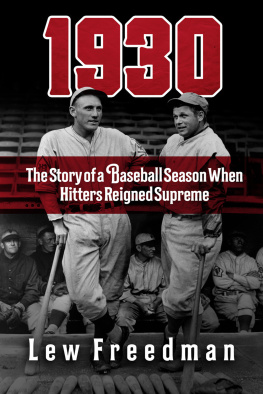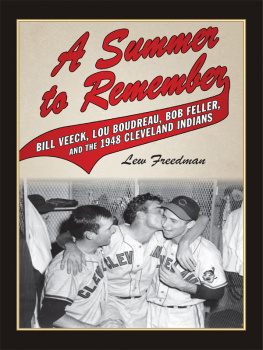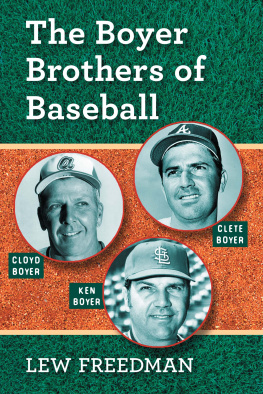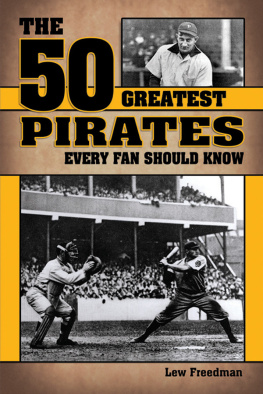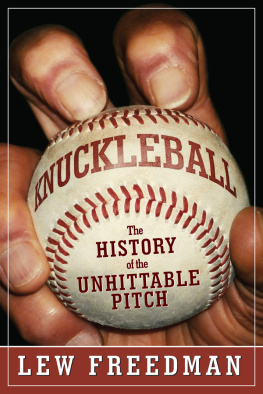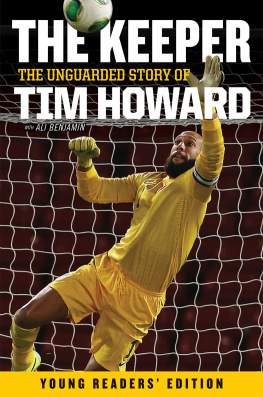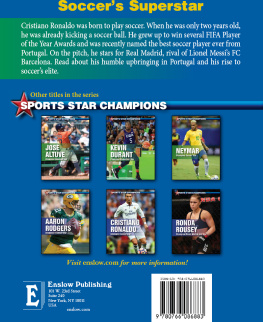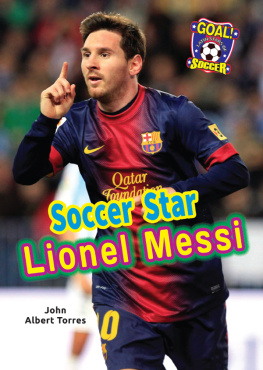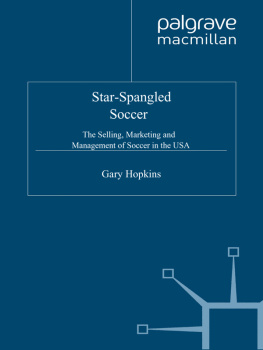PEL
A Biography
Lew Freedman

Copyright 2014 by ABC-CLIO, LLC
All rights reserved. No part of this publication may be reproduced, stored in a retrieval system, or transmitted, in any form or by any means, electronic, mechanical, photocopying, recording, or otherwise, except for the inclusion of brief quotations in a review, without prior permission in writing from the publisher.
Library of Congress Cataloging-in-Publication Data
Freedman, Lew.
Pel : a biography / Lew Freedman.
pages cm. (Greenwood biographies)
Includes index.
ISBN 978-1-4408-2980-2 (hardback) ISBN 978-1-4408-2981-9 (ebook) (print) 1. Pel, 1940 2. Soccer playersBrazilBiography. I. Title.
GV942.7.P42F74 2014
796.334092dc23
[B] 2013027228
ISBN: 978-1-4408-2980-2
EISBN: 978-1-4408-2981-9
18 17 16 15 14 1 2 3 4 5
This book is also available on the World Wide Web as an eBook.
Visit www.abc-clio.com for details.
Greenwood
An Imprint of ABC-CLIO, LLC
ABC-CLIO, LLC
130 Cremona Drive, P.O. Box 1911
Santa Barbara, California 93116-1911
This book is printed on acid-free paper 
Manufactured in the United States of America
Recent Titles in Greenwood Biographies
Michelle Obama: A Biography
Alma Halbert Bond
Lady Gaga: A Biography
Paula Johanson
Bono: A Biography
David Kootnikoff
Henry Louis Gates, Jr.: A Biography
Meg Greene
Robert E. Lee: A Biography
Brian C. Melton
Ulysses S. Grant: A Biography
Robert B. Broadwater
Thurgood Marshall: A Biography
Glenn L. Starks and F. Erik Brooks
Katy Perry: A Biography
Kimberly Dillon Summers
Sonia Sotomayor: A Biography
Meg Greene
Stephen Colbert: A Biography
Catherine M. Andronik
William T. Sherman: A Biography
Robert P. Broadwater
Pope Benedict XVI: A Biography
Joann F. Price
CONTENTS
SERIES FOREWORD
In response to school and library needs, ABC-CLIO publishes this distinguished series of full-length biographies specifically for student use. Prepared by field experts and professionals, these engaging biographies are tailored for students who need challenging yet accessible biographies. Ideal for school assignments and student research, the length, format, and subject areas are designed to meet educators requirements and students interests.
ABC-CLIO offers an extensive selection of biographies spanning all curriculum-related subject areas including social studies, the sciences, literature and the arts, history and politics, and popular culture, covering public figures and famous personalities from all time periods and backgrounds, both historic and contemporary, who have made an impact on American and/or world culture. The subjects of these biographies were chosen based on comprehensive feedback from librarians and educators. Consideration was given to both curriculum relevance and inherent interest. Readers will find a wide array of subject choices from fascinating entertainers like Miley Cyrus and Lady Gaga to inspiring leaders like John F. Kennedy and Nelson Mandela, from the greatest athletes of our time like Michael Jordan and Muhammad Ali to the most amazing success stories of our day like J. K. Rowling and Oprah.
While the emphasis is on fact, not glorification, the books are meant to be fun to read. Each volume provides in-depth information about the subjects life from birth through childhood, the teen years, and adulthood. A thorough account relates family background and education, traces personal and professional influences, and explores struggles, accomplishments, and contributions. A timeline highlights the most significant life events against an historical perspective. Bibliographies supplement the reference value of each volume.
INTRODUCTION
In the 1970s, when soccer great Pel came to the United States to play for the New York Cosmos of the North American Soccer League, American newspaper readers and television watchers were informed that he was the best-known person in the world.
Since soccer was not considered a major sport in the country at that timeindeed, one of the main reasons the Brazilian luminary chose to come out of retirementthe somewhat egocentric American public had trouble believing or understanding that claim.
But it was undoubtedly true. What the American audience failed to comprehend was the grip soccer had on the rest of the world. Throughout South and Central America, Europe and Africa, soccer was king. Soccer was not only the most important sport in most of the nations on earth, it was also deeply entwined in the fabric of the cultures of most of those countries.
As the best player in the world, and indisputably the best of all time, Pel transcended national boundaries. He was a human deity to any soccer-following country on the planet. The president of the United States may have been the most powerful man on earth, but Pel was recognized by peasants in deserts and tribesmen in jungles.
For many of the poor of the earth, soccer was the only game. It was so inexpensive to play that even those that lived in impoverished communities or countries could rustle up a ball, or a facsimile of a ball, something made by themselves that was suitable to kick around.
Pel was such a special player that even those not invested or well-educated in the sport could pick him out of a scrum anonymously. His skills shone that brightly. If fans knew of his personal history, rising from poor circumstances himself, they could identify with it. And for those of black skin, for those of minority status, resentful of previous white colonialism, it did not hurt any that Pel was also dark-skinned.
Over the decades, from the time Pel made his debut as a teenager on the world scene by representing his country in the World Cup of 1958, Pels stature and status steadily grew, and his fame did so commensurately as well. He was the only man in the history of the sport to score 1,000 goalsa figure that denoted him as being at least part-magician.
In addition, the Pel who showed himself to the Brazilian people and the world at large was gracious and engaging. He signed autographs endlessly. He smiled enthusiastically in triumph and was humble in defeat. He gave of himself and sought to set an example as a great man, as well as a great player, without ever stating so explicitly.
The player known as Pel was born Edson Arantes do Nascimento, though outside of signature requirements on legal documents, his use of that full and more cumbersome name long ago fell into disuse. Pel became Pel as a youth, and the origin of the name continues to baffle him. It was as if a new name was needed to apply to someone demonstrating impossibly new skills.
In Brazil, Pel was not only acclaimed as a national hero for bringing so much honor to his home country through its favorite sport, but was proclaimed a national treasure, as if he were a concrete monument built in the heart of the country.
Through salary and endorsements, at one time, Pel was also the richest athlete in the world. Yet, like some of his sporting contemporaries, he was taken advantage of and keenly felt the loss of many of his assets. He had the fortitude to start over and rebuild and long after playing his final game for Brazil in 1971, he remains a wildly popular figure and very much a national treasure.
The entirety of Pels soccer involvement from his youth until his early 30s was built around competing for the national team in the biggest matches and for his Brazilian club team. Many times, Pel fielded offers to play for wealthy clubs in other countries, but always turned them down to remain affiliated with Santos, the only club of his prime years.


